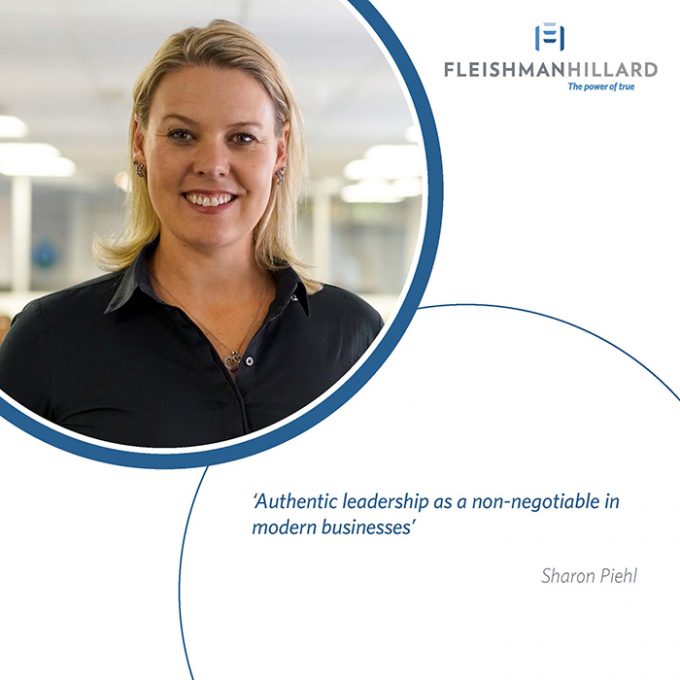Authentic leadership as a non-negotiable in modern businesses
 If the news headlines and stories surrounding the South African state capture scandal have taught us anything in the last few months, it is that there is nowhere for companies or their leaders to hide if they are found to have entered into what could be perceived as corrupt practices.
If the news headlines and stories surrounding the South African state capture scandal have taught us anything in the last few months, it is that there is nowhere for companies or their leaders to hide if they are found to have entered into what could be perceived as corrupt practices.
Whether these are true or not, the tidal wave of reporting has gained momentum, placing global corporate giants and their leadership teams under severe scrutiny thus becoming the subjects of fierce and often adverse public opinion.
In the face of the growing importance of reputation capital worldwide – corporate reputation emerged as one of the key trends in the 2017 World PR Report, and one of the biggest areas of growth in Africa, increasing by over 60 percent – it is no longer possible to separate corporate reputation and the personal reputations of the people in charge of running the company.
In fact, in a global study that FleishmanHillard conducted of almost 300 companies across more than 25 industries, conducted with nearly 5 500 consumers in five countries. We found that 78 percent of people around the world equate a CEO or leader’s integrity with that of the company they lead.
Overlaying that is the fact that nearly half of what comprises our beliefs and perceptions of a company is driven by how the executives behave and how exactly the company impacts on the communities that it operates in.
Increasingly, the value that people associate with a company’s products or services is determined by their own personal values, how they see companies and their leadership teams living up to those values and whether they are behaving ethically. There is no denying that authentic leadership is, as such, a cornerstone of successful businesses more than ever before. Leaders tasked with steering their companies through the choppy waters of an uncertain and volatile world need to be able to stand up to close inspection and bring both themselves and their organisations out unscathed on the other side.
What this means for business leaders across industries and companies of all sizes is the need to be transparent, truthful and reliable in order to be trusted as authentic. This not only applies to companies’ customers and clients, it extends to employees too. In workplaces straining at the seams with millennials – who select the companies they apply at and work for based on their own values – it is critical for leaders to be authentic.
The good news is that authentic leaders have the power to use that reputation capital to drive shared value for their own companies, clients and customers, employees as well as the communities they operate in. This makes it a non-negotiable priority for the leadership of modern organisations.
Sharon Piehl, Managing Director, FleishmanHillard South Africa
-

As general manager of FleishmanHillard’s Johannesburg office, Sharon Piehl provides clients with counsel in many areas. With over 20 years’ experience in the communications industry, she has served as both the lead of the brand marketing portfolio in the Johannesburg...
Find Out More
-
Mandela Day 2025 - Leaving a Mark That Matters
July 23, 2025
-
Digital Insights Bulletin - October 2024
October 31, 2024
-
Sharon Piehl Wins 32nd Annual John D. Graham Award for Excellence
October 25, 2024


